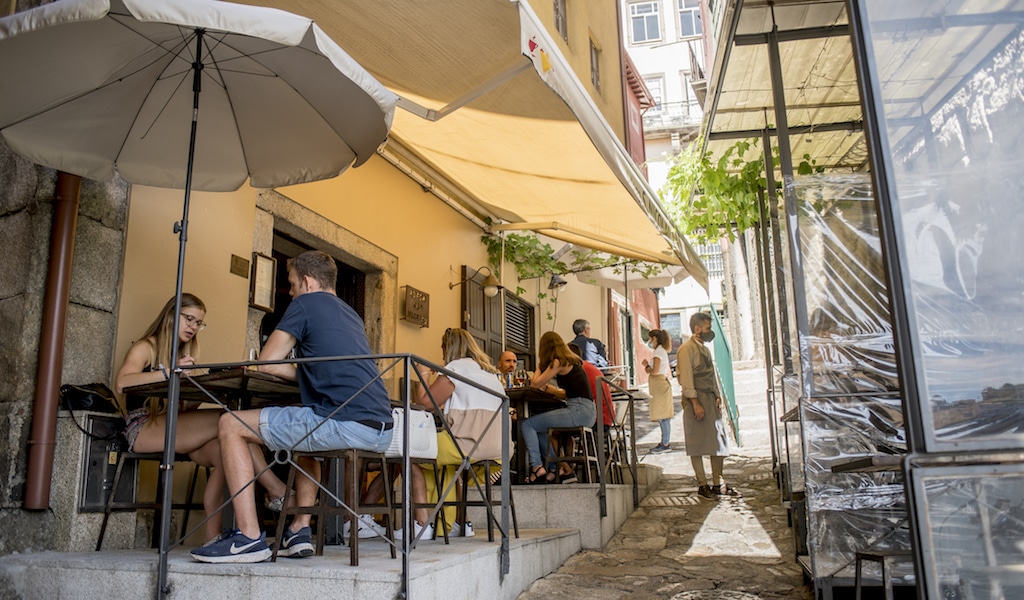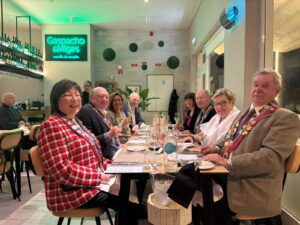Almost half of Portugal’s restaurants recorded losses of more than 40% in January, while a third of accommodation concerns lost more than 60%, still associated with the pandemic, according to a survey released by sector association AHRESP today.
“2022 started worse than 2021 for restaurants and tourist accommodation companies”, said the report. “After two years of the pandemic, with several restrictions on the activity, the over-indebtedness of companies is now joined by price increases in energy, fuel and raw materials”.
Faced with this “perfect storm”, the association is demanding that the government moves forward with an “action plan to ensure the viability of companies” in the sector.
Speaking of a “still very dramatic scenario” for the sector, AHRESP says the drop in income “is largely the result of the direct effects of the peak of the fifth wave of the pandemic”.
According to the survey, 78% of catering and similar businesses and 37% of accommodation businesses had workers infected with SARS-CoV-2, and 51% and 19%, respectively, even had to close for at least seven days for that reason.
“As a result of this environment the survey again revealed an increase in insolvency intentions, even doubling in catering businesses”: “Today, 31% of catering and similar businesses are considering closing down permanently. The situation is less serious in the accommodation sector, with 8% of companies mentioning this intention”.
The association also notes that “one of the concerns felt in recent times has been the notorious difficulty in hiring professionals for these sectors”, with 90% of catering companies that need to hire new employees describing “serious difficulties” in doing so, especially for kitchen and table/counter professionals.
These difficulties have also been registered in accommodation, with the survey showing that 78% of companies “felt challenges in hiring, especially for cleaning, cooking and reception”.
Also “very relevant” for the association is that 52% of the catering and 28% of the accommodation companies stated that they had to postpone investments due to difficulties in hiring staff.
Analysing the results of the survey in more detail, it can be seen that in January this year, 43% of the companies registered a drop in turnover of more than 40% compared to January 2021, and for February, 26% of the companies estimate a drop in turnover of more than 50%, compared to February 2021.
In February 2022, 41% of the companies mentioned that they could not support usual costs (personnel, energy, suppliers and others) and 31% of the companies are considering going bankrupt if they cannot support their costs.
For the catering industry, the three priority measures for economic recovery are the temporary application of reduced VAT rate for food and beverage services (85%), non-refundable support for cash flow and debt reduction for businesses (66%) and reduction of corporate income tax (43%).
In the tourism accommodation sector, 29% of companies registered a drop in turnover in January of more than 60% compared to January 2021 and, in February, 26% of the companies estimate a drop in turnover of more than 50% compared to February 2021.
In February 2022, 20% of companies stated that they would not be able to support usual costs (personnel, energy, suppliers and others); 8% are considering insolvency.
In January, 32% of the companies registered no occupancy rate, 21% indicated an occupancy rate of up to 10%, and 24% of the companies said that the occupancy rate in January of this year was more than 60% lower than in January 2021.
Considering reservations already confirmed for February, March and April, the main source markets will be Portugal (referred by 60% of companies), Spain (43%), France (32%) and Germany (31%).
When asked what would be the three priority measures for recovery of the economy, accommodation companies highlighted the reduction of the Corporate Income Tax (52%), non-refundable support for cash flow and debt reduction of companies (50%) and financial mechanisms for new investments and the re-qualification of companies (42%).
Lusa




















